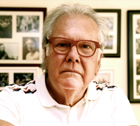The New South Wales Independent Commission Against Corruption, along with Crown prosecutor Margaret Cunneen, are two of the state’s “untouchables” — highly revered by the public for integrity and courage and regularly applauded by the media.
ICAC has an unstained 25-year record of cleaning up corruption in politics and government while Cunneen is lauded for jailing rapists and exposing paedophiles. However, in a week’s time, Cunneen, a deputy senior prosecutor, and her son Stephen Wyllie will appear at a public ICAC hearing to answer allegations that they perverted the course of justice.
The stakes couldn’t be higher. ICAC commissioner Megan Latham QC, a former NSW Supreme Court judge, will need to demonstrate to a confused public why Cunneen has been summoned into the spotlight of the commission. Already, Cunneen’s army of supporters in the legal profession are claiming their heroine is a victim of a “witchhunt”. To avoid any claims of bias, Latham has appointed a non-NSW judicial figure — former Queensland crime and misconduct commissioner Alan MacSporran QC — to preside at next week’s inquiry, with Sydney barrister Michael Fordham SC to act as counsel assisting.
Three days of public hearings due to begin on November 10 have been overshadowed by the latest revelation that the ICAC Inspector David Levine QC, also a former Supreme Court judge, has written to the commission asking for an explanation of its decision to conduct the Cunneen inquiry, code-named Operation Hale.
Levine’s intervention is unprecedented. No previous inspector has used statutory powers under the ICAC Act to send the commission a “please explain” letter. To underline its total independence, the inspector’s office is physically situated separate from ICAC’s headquarters in Castlereagh Street, Sydney. If required, the inspector can sit as a royal commissioner using his extensive powers to compel witnesses to provide evidence, but that extreme course of action is not contemplated at this stage.
In May this year, Wyllie told his girlfriend Sophia Tilley to “pretend to have chest pains” to stop police from breath-testing her at the scene of a car crash. The allegation to be tested by ICAC is that Wyllie received the advice to fake chest pains during a telephone call to his mother. If proven, the consequences for the high-flying Crown prosecutor and her son could be devastating.
Sydney’s legal fraternity, a notoriously close-knit closed shop, is of the view that the investigation should have been conducted by the police and never gone to ICAC. “It’s a police matter pure and simple,” one lawyer told Crikey. Others believe Cunneen is being deliberately targeted by enemies, real or imagined, in the NSW police or the Catholic Church.
Last year, Cunneen was chosen by then-NSW premier Barry O’Farrell to head a special commission of inquiry into a multitude of child sex crimes in the Newcastle-Maitland Catholic Diocese. Central to the inquiry was that whistleblower Detective Chief Inspector Peter Fox had been silenced by senior police who were zealously protecting abusive priests.
Cunneen’s 750-page report released in May this year was a study in even-handedness; she savaged the church for dereliction of duty, but also criticised Fox’s evidence saying that it was “implausible” and “deliberately untruthful”. Fox had “developed what amounted to an obsession about both the Catholic Church and alleged conspiracies involving senior police”, Cunneen wrote. She concluded: “The commission formed the view that Fox had engaged in conduct that was inconsistent with the integrity of a police officer.”
Since then, Fox’s ardent supporters in the anti-paedophile movement and Fairfax Media’s Newcastle Herald have been vowing to “get even”.
Standing down from her job until the ICAC inquiry is concluded, Cunneen issued a statement saying: “I deny the allegations which can only be the result of a malicious complaint.”
We shall see …









After the almost perfect report card she handed down on the police at the Newcastle inquiry I find it impossible to believe Cunneen has any “enemies, real or imagined, in the NSW Police” Force. Perhaps that is why a police investigation has been bypassed?
Norm, I agree with you.
The whitewash of Police, the collusion of the Police and Catholic Church, was not entirely dependant on Fox’s testimony the paper trail and lack there-of was damning! So it certainly would not have be appropriate for NSW Police to investigate, as with the Church they demonstrated that they could not track an elephant through snow.